A Lynching in Jerusalem
A few days ago someone handed me an article that I wrote 16 years ago. As I re-read it later (while wondering why it had been handed to me), I felt impressed to reprint it in this month’s Priority to help our pastors and teachers begin thinking about their Good Friday and Easter themes. God bless you as you prepare to bless God’s people!Yawning in the early morning light, he made his way to the pile of lumber behind his shop. Picking out a few pieces, he carried them to the spot where he had placed the other two crosses and began to work. The first two he had known about. Then word had come this morning before the rooster crowed that there would be a third. Perhaps he wondered idly about the haste to kill another Jew. But it wouldn’t have occupied his thoughts for long.We naturally think that the crucifixion of Jesus would have been a big deal to the Romans who ordered it because the death of Jesus is a big deal for us. We think wrong. I suppose that the nameless man who fashioned the cross on that morning in Jerusalem had a lot of experience. He made three that day, and perhaps a couple the day before, or three or four for the following weekend.Crucifixion, you see, was a common sight in Israel in that day. The Romans wasted no effort befriending their subjects. The Pax Romana (Roman Peace) was purchased at the expense of any leniency. Rome knew that the more crosses they hung in public places, the more their subjects would take seriously their orders; and on that the Romans were very intent.Thus our Master died as a common criminal. Those two pieces of lumber, rough-hewn and made of inferior wood, were no doubt laid down carelessly and joined hastily with a few well-driven spikes.If you were going to make something that joined heaven and earth, you would certainly choose something more sturdy than two pieces of wood and a few spikes. But because our Creator delights in doing the improbable with the unlikely, that timber has borne the weight of history and held heaven fast to earth for more than 2000 years.What was so special about that particular cross? There is only one possible answer. The man who hung there dying was fulfilling a greater destiny than anyone who had ever before been hung on a cross. The difference was the one who hung there.We know, of course, that He created the forest from which the cross was derived. In the deep places of the earth He placed the minerals and knew the exact spot from where they would be drawn to forge the spikes that impaled His wrists and feet. In fact, though no one in the crowd that day realized it, He had lovingly fashioned the very men who grunted to hoist the cross into an upright position. He had known them as babies in their mothers’ wombs and had given them life and blessing and provision, despite the fact that they would one day kill Him.Our Master had engineered this moment of His own death with love and unhurried pace. His plans for redemption moved along their appointed course; and when Jesus and a frame of wood met on a Friday morning outside of Jerusalem, history held its breath.From the human side, this was just a lynching in Jerusalem. The dictionary on my desk defines “to lynch” as “to murder an accused person by mob action and without lawful trial.”And certainly, by any definition that matters, Jesus was lynched. Consider:This was a death sentence without the weight of law.“Crucify Him!” they shouted. “Why? What crime has He committed?” asked Pilate [the judge in His case]. But they shouted all the louder, “Crucify Him!” [Mark 15:13-14]An angry group of community leaders took matters into their own hands.The chief priests and the whole Sanhedrin were looking for evidence against Jesus so that they could put Him to death, but they did not find any. [Mark 14:55]The forced, fake trial in the middle of the night included trumped-up charges and lying witnesses.Many testified falsely against Him, but their statements did not agree. [Mark 14:56]This was a racist sort of murder.Rome did not permit any of her own citizens to die this way, no matter how horrible their crimes. Crucifixion was reserved only for non-Romans.The judge, inclined and even desirous to let Jesus go, finally bowed to the pressure of the mob’s screaming and threats of violence.Pilate called together the chief priests, the rulers, and the people, and said to them, “You brought me this man as one who was inciting the people to rebellion. I have examined Him in your presence and have found no basis for your charges against Him. Neither has Herod, for he sent Him back to us; as you can see, He has done nothing to deserve death. Therefore, I will punish Him and then release Him …With one voice they cried out, “Away with this man!” [Luke 23:13-18a]Lynching victims are killed for who they are, not for what they have done.Jesus was certainly killed for who He was, not because of any wrongdoing that He had committed.Yes, from a human viewpoint, this was a lynching. But here is where the perspective of men and the perspective of God part ways.Scripture tells us that God is the AUTHOR of this incredible plan of salvation and the inventor of this grand act of redemption.In Acts 2:23, while preaching at Pentecost, Peter says, “This Man was handed over to you by God’s set purpose and foreknowledge; and you, with the help of wicked men, put Him to death by nailing Him to the cross.”Could it possibly be that God Himself was in on this plan? The answer, of course, is both yes and no. Certainly one could never claim that God was complicit in the sense that He coerced these men to act against their will. The Scripture never tells us that God FORCED Judas or the Jewish leaders to commit any of these acts.But consider the Acts 2 verse above. It was in the handing over of Jesus that God exercised His “set purpose and foreknowledge.” First, it says that Jesus was handed over to His enemies by God’s “set purpose.” The word in the Greek text that is here translated as set describes a boundary or limit. (It is from the word horidzo, the derivation of our word horizon.) The word for purpose here describes the will of God. Used together, this phrase means that God took the plan to the boundaries of His will … He did everything He could to deliver Jesus to this place; and then when His sovereignty reached its limit, or boundary, or horizon, He let go and let events take their course.What is the limit or boundary of God’s will? Scripture tells of only ONE THING that ever limits God’s plan, and that is the free will of man. Our wonderful Creator made a decision in the misty dawn of time that man would not be a robotic responder to His voice, but a willing partner in His creation; and so He gave men and women free will and has never taken that away from them.This is why Scripture makes mysterious remarks like, “In the same way your Father in heaven is not willing that any of these little ones should be lost” (Matthew 18:14); and “He is patient with you, not wanting anyone to perish, but everyone to come to repentance” (2 Peter 3:9). We know, of course, that some people ARE in fact lost; and some people do in fact perish. But God’s will for the salvation of all hits a boundary and a limit when it comes to the free will of man.The second part of Acts 2:23 says that not only was Jesus handed over by God’s set purpose, but also by God’s foreknowledge. The Greek word used here is the word prognoosei, or to use its more common form, prognosis.We know what a prognosis is, don’t we? When the doctor comes out of the operating room shaking his head, the anxious family looks at him with a sinking heart and says, “The prognosis isn’t good, is it, doctor?” Now no one in that waiting room believes that the doctor CAUSED the cancer by his prognosis, but simply that he KNOWS the likely outcome of events.In the same way, Scripture says that when Jesus was handed over to the cross, God walked with Jesus to the boundary limits of where His will ended and the will of men took over; and then the Father left the Son there, even though He knew that the hearts of men would take events down a dreadful path.Why would Jesus take that walk with the Father? Because His heart and mind were perfectly aligned with His Father that this step was necessary. From the human viewpoint, there was a lynching in Jerusalem … one like many others in that cruel era of history. But from God’s perspective, the sad walk to Calvary was a necessity because both Father and Son were agreed: they BOTH were not willing that any should perish, but that all of us should have an opportunity to repent.Two flimsy pieces of wood could never hold heaven and earth together unless the Father Himself wanted them joined.


